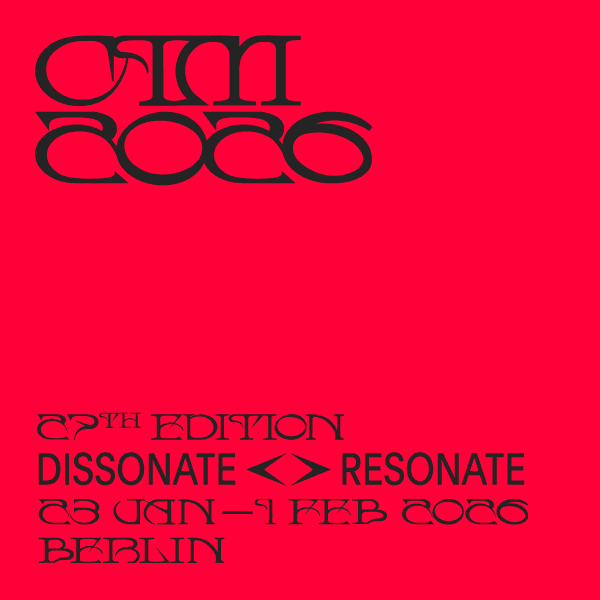
“It’s not worth the risk to just sit and wait”
The gender imbalance on the contemporary music scene has been discussed for decades, but things are changing very slowly. Two young composers, Marta Forsberg and Lo Kristenson, have taken matters into their own hands and started Konstmusiksystrar (Sisters in Contemporary Music), a Swedish network organization for all composers and sound artists under the age of thirty who identify themselves as women or trans people. By standing together, their goal is to generate greater visibility and attention for their members and activities, but also to change existing norms and structures within the world of contemporary music. I caught Marta and Lo on Skype, eager to learn some more about their approach to changing status quo.
“Actually it started with UNM in Malmö two years ago, where the line-up of the composers was very unequal,” Marta explains. “There were six female composers, and the rest (29, ed.) were guys. We were like: ‘Okay, why is this happening?’ And then our UNM board in Sweden said: ‘Yeah, but there are no female composers applying.’ So we thought: ‘Okay, but this must be possible to change.’”
This was the impetus to gathering a list of female and trans composers and establish Konstmusiksystrar in 2014. A lot has happened since then: Konstmusiksystrar is now being invited to consult by some of the big music and culture institutions. They have contemporary music camps for children and teenagers. They are giving presentations at international conferences and organizing sound art exhibitions for their members. By actively reaching more out, they have ensured that a lot more women are applying to the UNM. Last year in Helsinki, the Swedish delegation consisted of six women out of eight composers in total, and this year it is fifty-fifty. Denmark, on the other hand, is represented by one female and six male composers.
Feminism, and the need to do something
In Denmark, the general opinion is that it would be great to have more female composers, but people disagree about how actively the imbalance should be addressed on an institutional level. How do the Swedes approach this discussion? I ask Konstmusiksystrar.
"These institutions, norms, and traditions in contemporary music are so strong, and have been so for hundreds of years, that they will not change at all, not by themselves."
“I think in Sweden, in the last five years or something, it’s become an image to say that you are a feminist – it makes you a good person. So there are people saying they want change, but they aren't doing anything,” Lo tells me.
“Of course this is a huge question,” Marta adds. “How much should you push without forcing something? Still, I don't think that this is a reason not to do anything. These institutions, norms, and traditions in contemporary music are so strong, and have been so for hundreds of years, that they will not change at all, not by themselves. Or at least it’s going too slow.”
Changing the basic structures
The Konstmusiksystrar Manifest states that they want to change the existing structures. And it is clear from talking to them that they are working towards getting policy makers, institutions, and other powerful parties on board. But still, most of their work takes place at a roots level, changing the atmosphere from the bottom up.
“We talked a lot about how we can inspire others by showing how we are working together, in our system and our structures. When we have a call for works in our organization, for our members, we shouldn't have a jury that chooses which works are the best,” Lo begins, and Marta pitches in:
“We will have a lottery, haha! No, what is it called when you just pick randomly? If there is a call for works and we have twenty people applying and there are five spots, we just pick randomly from this bunch, without knowing beforehand who it is – instead of having a hierarchy, or a personal opinion, saying that this is good music and this is bad music.”
“…The personal opinion of famous composers, seventy years old, who have worked their whole lives for specific aesthetics,” Lo adds.
“If you apply for money or a call, a festival, or anything, there’s always a jury,” says Marta. “So now we want to change this hierarchy and just change this way of thinking about ‘good art’ somehow, and about control of the arts. Everything is based on this structure, right and wrong, and you’re always competing with each other, and this also creates an atmosphere among composers and artists that you are competing instead of working together.”
 Konstmusiksystrar workshop in Gothenburg, June 2016. Copyright: Klara Andersson
Konstmusiksystrar workshop in Gothenburg, June 2016. Copyright: Klara Andersson
The question of quality
By choosing works randomly, I reply, one might argue that Konstmusiksystrar are compromising with the quality of the music. An objection both composers seem prepared for.
”But what is quality, and who defines quality?” Marta asks rhetorically, and continues: “Couldn't variation be quality? Couldn’t it be like ’Oh, I went to a concert, and the quality was great because there were so many highs and lows concerning who was performing; some old people and some super young people, and some kids, and some punks, and some string quartet, and that was quality.‘ I mean, what is quality? It’s always changing, and also not changing, there is stuff that never changes. I guess we just have to change the basic approach to things like, what is creativity, and who is allowed to be creative.”
In June, Konstmusiksystrar and Föreningen svenska tonsättare (Society of Swedish Composers) organized a contemporary music course for young girls and transgender people in Gothenburg, and what they observed was a very clear orientation towards specific gender-based norms.
”We saw these kids go into directions that are very male-dominated.”
”We saw these kids go into directions that are very male-dominated,” Marta recounts, “into ‘macho music’, somehow, that is ‘cool’ and ‘hard’ and contains beats. And what you heard them say was that this is what is cool in their schools, and this is what the guys are doing, and if you do this music you get accepted. And then we realized: This is not what we want to do. We don't want to reclaim stuff that is masculine, but we would like to give them something completely new. Something that is not either feminine or masculine, but just something new. Where you could be free for real. And I don't know if anyone could be completely free from norms, but we could try to just steer these young people into new ways of thinking about music and sound, and about hierarchies in sound.”
“That is also the main theme of contemporary music,” Lo adds, “to change what have been the music traditions, to change them to a new kind of thinking about music.”
The strength of togetherness
Apart from initiatives like exhibitions, talks, and camps for young girls, Konstmusiksystrar’s main tool is its list of members. The list is proof that young female composers exist and cannot be denied. But some composers don't want the label ’female’, they just want to be called composers.
“We have colleagues and friends that are not a part of the Konstmusiksystrar,” Marta tells me, “and don’t want to be a part of it because they don’t want to label themselves. Maybe they don’t want to be seen as angry feminists, and maybe they are not identifying with the struggle. I mean, this is totally understandable. As I see it, we are doing this for everyone – we are not only doing it for the female composers, we are doing it for the whole society of composers. It’s better if we are more equal, it’s going to be more fun if there is variation. And for me, and for the ones that are in Konstmusiksystrar, it’s a strength to feel that you stand united. When people don’t believe in you because you are a woman, we have each others’ backs, somehow. Then it’s easier to be ’alien.’”
“It’s nice to feel there is a room where we are in the majority.”
“It’s nice to feel there is a room where we are in the majority,” Lo adds, summing up the need for initiatives like Konstmusiksystrar. “Exactly,” Marta agrees, “a room where we can sit and just, not be women, but just be individuals. When you are with other women this happens, I feel, because then you are free, and this experience of feeling like that is very unique, and I don't think that many women and girls have ever felt this very strongly. And it makes you strong in the hope that you can feel like this always. We should feel like this always. That is the goal.”
How to get there? Not by sitting around waiting for change to happen, Marta insists. ”Maybe all the female composers of today will be written into the history books naturally, without being forced by the feminist movement. But it’s not worth the risk to just sit and wait. This is how I see it. Reading the books of earlier feminist writers or composers, it’s the same thoughts as today, but nothing happened, or there is such slow change, so it just feels like it’s not worth the wait.”

